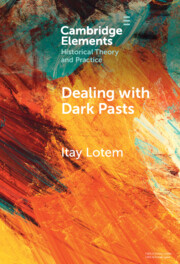2 results

Dealing with Dark Pasts
- A European History of Auto-Critical Memory in Global Perspective
-
- Published online:
- 04 December 2024
- Print publication:
- 16 January 2025
-
- Element
- Export citation
Chapter 11 - European Crime Fiction
-
-
- Book:
- The Cambridge Companion to World Crime Fiction
- Published online:
- 14 April 2022
- Print publication:
- 21 April 2022, pp 196-220
-
- Chapter
- Export citation

